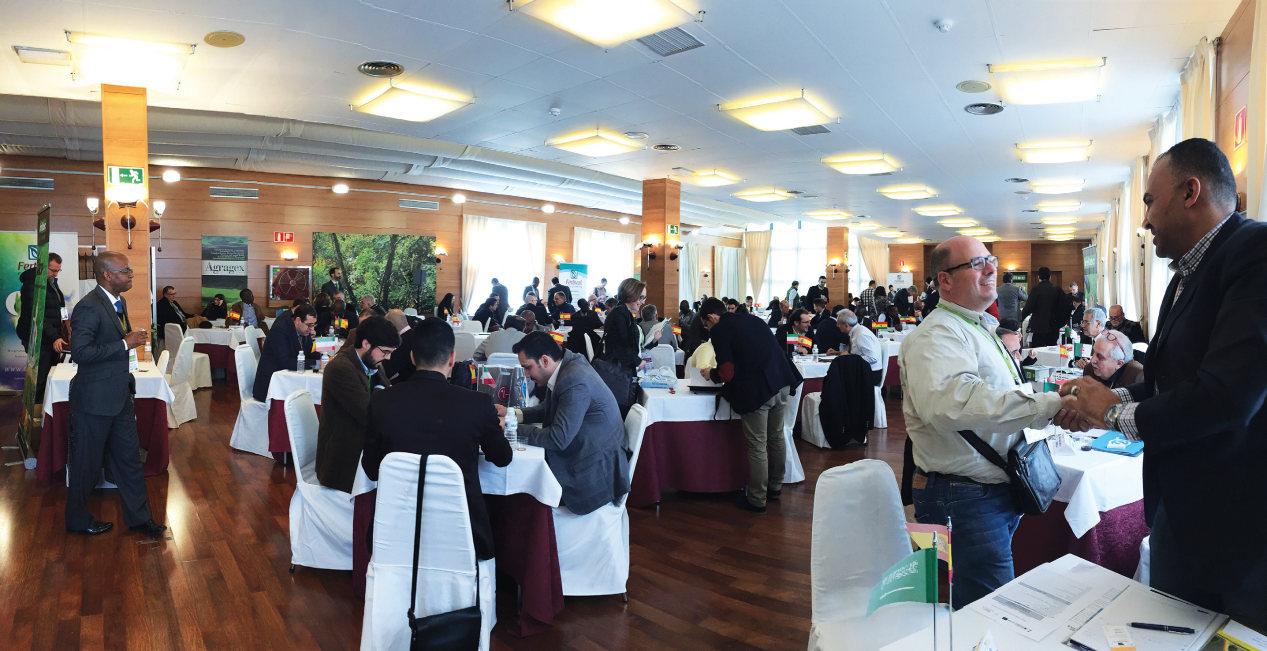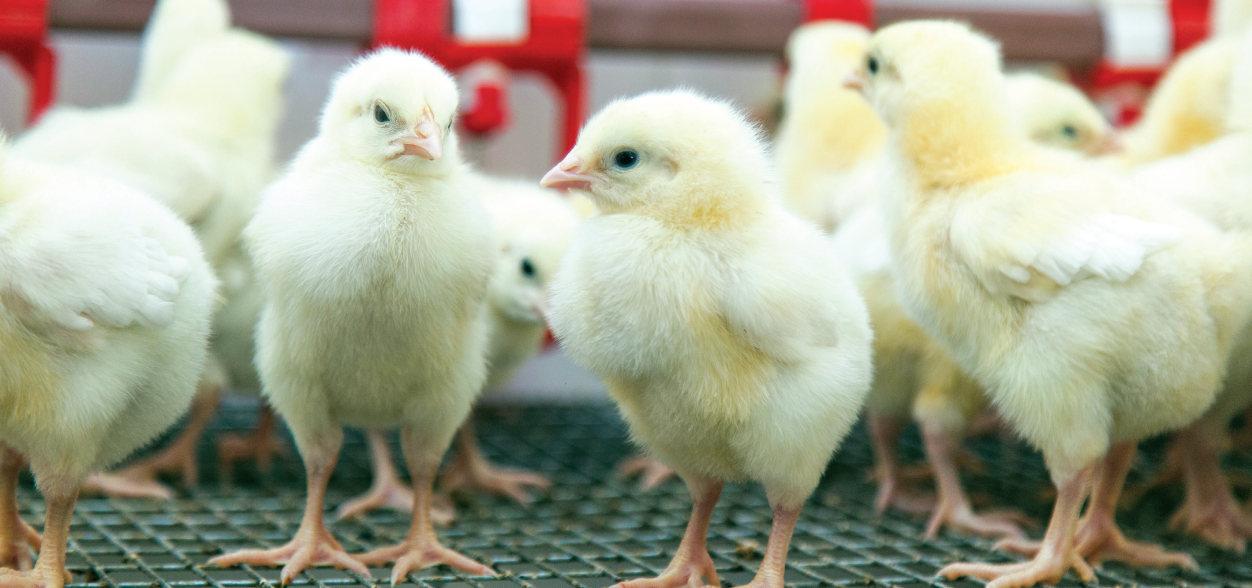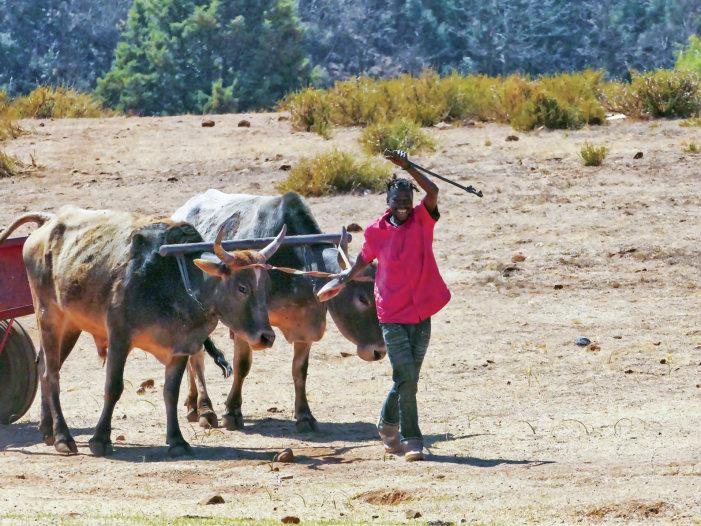
19 minute read
Contents
Farming Calendar 2021
FEBRUARY
3-7 EIMA www.eima.it/en
MARCH/APRIL
30-1 agrofood & plastprintpack Nigeria https://www.agrofood-nigeria.com/
MAY
27-29
JUNE
16-19 IDMA AND VICTAM EMEA 2021 https://idmavictam.com/
Iran agrofood FEDERUNACOMA HAS GIVEN the go ahead for EIMA
It is part of the restart strategy of the Italian trade exhibitions, 2020 to showcase products to establish virtual rooms for business gies that is growing globally. www.iran-agro.com
BOLOGNA, ITALY
LAGOS
ISTANBUL
TEHRAN
Readers should verify dates and location with sponsoring organisations, as this
FAO aims to unlock Africa’s potential to end hunger and malnutrition
AT THE REGIONAL Conference for Africa, virtually hosted by the government of Zimbabwe in collaboration with the FAO, the director-general of FAO, QU Dongyu remarked, “Africa is the continent of untapped potential and remains a crucial priority for me. I am convinced that agricultural and rural development are the keys to winning the battle against poverty and hunger in Africa.”
The conference reiterated the FAO’s agenda of transformative action to build a dynamic, inclusive and agile organisation that serves its members to achieve better production, better nutrition, a better environment and a better life.
EIMA International gets green light for 2021
International to be held from 3 to 7 February 2021 at the Bologna exhibition centre.
launched by the government to resume business activities following lockdown restrictions due to COVID-19.
Thanks to “green corridors” in place, businessmen from across Europe, America and Asia can attend EIMA International, waiving restrictions. A digital platform was held from 11 to 15 November contacts directly with businesspeople from all over the world.
The synergy between virtual reality and physical event aims to relaunch the sector’s market, in response to a demand for technoloinformation is sometimes subject to change.
EuroTier to happen digitally
THE EUROTIER EVENT is taking place digitally from 9 to 12 February 2021 due to the COVID-19 pandemic.
Organiser, DLG (Deutsche Landwirtschafts-Gesellschaft — German Agricultural Society) said the digital event will offer exhibitors flexibility with digital business packages, while offering visitors an extensive technical programme and networking opportunities.
Topics will include dairy, pig, poultry, energy, emission control and direct farm sales, as well as live discussions for planning investments.
For 2021, the DLG will offer additional events and trade fairs on aspects of animal husbandry and decentralised energy supply. "The increasing number of corona virus cases worldwide and the related restrictive travel guidelines for exhibitors and visitors require flexible business solutions and information services, like those offered by the 'EuroTier digital' events," explained Dr Reinhard Grandke, CEO of the DLG.
Three million people in Africa to benefit from post-COVID food security programme
IN AN EFFORT to achieve sustainable recovery and build resilience from the COVID-19 pandemic, the Mastercard Foundation has announced a programme that will support more than 3 million people in sub-Saharan Africa over the next two years. The programme will focus on building food security and increasing digital and financial inclusion within the most vulnerable farming communities.
In addition, the programme will: • Enable 65,000 farmers to directly benefit from quality land, seeds, fertilisers, mechanisation, and storage. • Tackle the root causes of hunger and poverty through a US$20.4mn commitment by the
Mastercard Foundation. • Scale the work of the smallholder farming collective, Alluvial Agriculture. The Mastercard Foundation’s COVID-19 Recovery and Resilience Programme will be implemented in partnership with Alluvial Agriculture. The programme will directly support 65,000 smallholder farmers with mechanisation, inputs, agronomic advice, and market access. The programme will
An Alluvial Agriculture tractor working a field.
Alluvial Agriculture Image Credit:
target an additional one million farmers with climate smart agro-advisory and market intelligence, benefitting at least 3 million direct dependents.
The support programme will enable participants to significantly improve yields, increasing from 2.5 tons of rice per hectare to 4.5, for example, from 1.5 tons of maize to 4 tons.
“Farmers must be at the forefront of helping us recover from this crisis,” said Chidinma Lawanson, country head, Nigeria, at the Mastercard Foundation. “This is a sector where there is tremendous potential, not just to create food security, but to enable work. But this isn’t just about recovering from the impacts of the pandemic, it’s also about building longterm resilience in the agricultural sector so that it can withstand the effects of emerging and future issues, such as climate change.”
Alluvial is tackling systemic problems that leave most sub-Saharan smallholder farmers unable to meet the minimum nutritional needs of their families and communities. Measures to contain the spread of coronavirus have made matters worse for farming communities by disrupting supply of inputs such as seeds, fertilisers, and access to markets.
The company’s innovative business model provides comprehensive support to smallholder farmers, including training, technology, land preparation, irrigation, input supplies, and market access. The company achieves this by organising adjacent farms in community blocks. This means that tractors, for example, can efficiently plough each of the smallholdings, saving weeks of toiling by hand.
25 young African agripreneurs through to final round of Agripitch competition
TWENTY-FIVE YOUNG AFRICAN agripreneurs have advanced to the “boot camp” final round of the African Development Bank’s AgriPitch competition, stepping closer to a share of US$120,000 in seed funding prizes, training and other benefits.
The final round offers young entrepreneurs in Africa’s agricultural sector the opportunity to pitch their agribusiness proposals online to a panel of experts and investors who will select the winners.
AgriPitch organisers received more than 2,500 applications and evaluated 605 proposals from 30 countries. The finalists, from 12 African nations, submitted promising proposals that best embraced the 2020 theme of “Driving Sustainable Nutrition and Gender Inclusivity in Africa’s Agri-Food Systems: Youth Agripreneurs Seize the Decade”.
Finalists, all aged under 35, were selected under the competition’s “Start Up,” “Mature Business” and “Women-Empowered Business” categories.
“It is encouraging to see that almost 62% of all AgriPitch 2020 applicants self-described as being women-led businesses or having women make up at least 50% of their management,” said Wambui Gichuri, the bank’s acting vice president for Agriculture, Human and Social Development.
“Word is spreading that AgriPitch is the competition where all qualified agripreneurs can get the training and support to grow their businesses,” she added. AgriPitch is part of the African Development Bank’s fourth African Youth Agripreneurs Forum (AYAF) – one of the continent’s most exciting platforms for African youth in the agriculture start-up scene – which kicked off online on 3 November and ran through to the AgriPitch winners’ ceremony on 17 November.
A Ghanaian maize farmer thrives on the ashes of destroyed forest
in neighbouring districts to buy maize for reselling and dreamed of one day owning a plot of land where she could grow the crop.
But there was not much land for commercial farming in Seikwa in
Ghana’s Bono Region, and the local soil is more suitable for cultivating cashew and yam.
In 2017, the mother of six got her wish fulfilled through forest plantation management company Form Ghana, which received a loan from the African Development Bank for a transformative forestry project.
After registering as a farmer with the Form Ghana programme, she received land that had once been a forest in Berekum, about 30km from Seikwa. She harvested around 6,800kg of maize from the 5ha field through intercropping, which involves simultaneously cultivating multiple crops on a particular plot farmland.
“I had always wondered about how I would get farmland for maize and even get money to clear and spray it. But now, all I wait for at the beginning of every farming season is a call from Form Ghana to complete the registration and land will be allocated to me for farming. The memory of this alone is encouraging and gives me a sense of reliability. I’m not burdened with how I will get land and money to prepare the field,” she said.
Form Ghana partnered with the African Development Bank, the
Forest Investment Programme of the Climate Investment Funds and the government of Ghana, to undertake an innovative public-private partnership in its forest sector. The project entails the reforestation of degraded forest areas in Ghana.
In the forests managed by Form Ghana, illegal farming was widespread. The company offers 629 farmers the option to participate in intercropping.
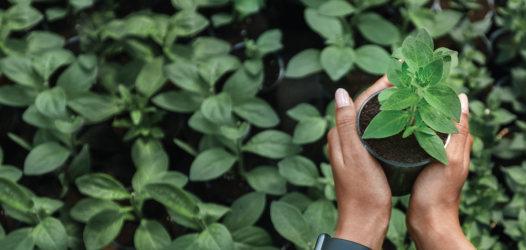
AgriPitch is part of the African Development Bank’s fourth African Youth Agripreneurs Forum.
The finalists are now enrolled in the AYAF/AgriPitch online training platform, according to Edson Mpyisi, coordinator of the bank’s Enable Youth Programme responsible for the event.
“In this two-week-long business development boot camp, AgriPitch competitors can attend virtual sessions on product development, revenue channel identification, logistics, marketing, business management, investment readiness, financing and other issues, led by trainers and coaches,” Mpyisi said. “The cash prizes may be the most ever awarded at AgriPitch, and the skills offered to all the finalists are invaluable,” he added.
In collaboration with partners, including UN Women, the African Leaders for Nutrition and the Affirmative Finance Action for Women in Africa initiative, this year’s AYAF and AgriPitch competition selected finalists from Kenya, Uganda, Rwanda, Nigeria, Benin, Tanzania, Cameroon,
FOR YEARS, CHRISTIANA Akwabea admired the vast fields she visited
Mozambique, Guinea, Malawi, Ghana and Côte d’Ivoire.
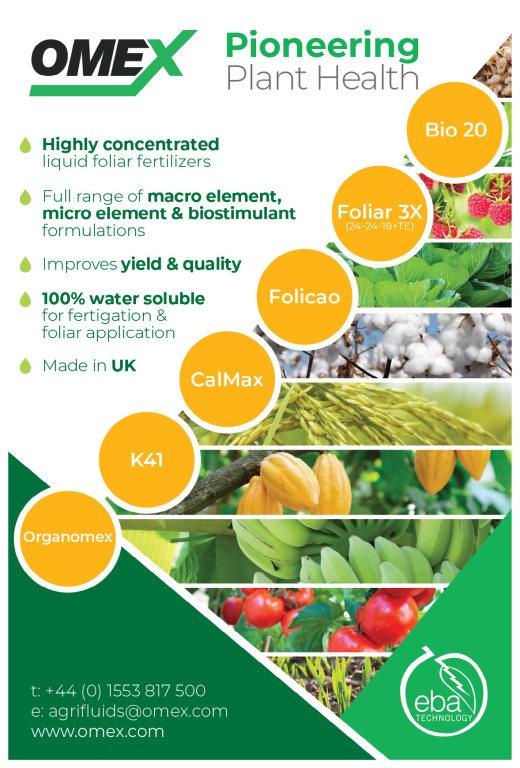
New Tissue Culture Facility for South Africa
A STATE-OF-THE-ART TISSUE Culture Facility (TCF) for the South African fruit industry has been established on the Western Cape. Western Cape Minister of Agriculture, Dr Ivan Meyer, opened the facility at Bernheim Farm, outside Paarl. The initiative is an effort to keep up with international trends and to make sure local producers have access to world-class plant material, according to local press reports.
The facility will support the grape, raisin, pome, and stone fruit industries and will mainly address the shortage of available rootstocks and ensure rapid multiplication of in-vitro plant material.
The initiative is supported by a R10mn (US$640,000) investment from the Western Cape Department of Agriculture.
FAO, OIE kickstart initiative for African Swine Fever
THE FAO AND the World Organisation for Animal Health called on all nations to help control the pig disease under the Global Control of ASF initiative.
“Our goal is to prevent the spread - and ultimately eradicate - this disease, leveraging the latest science, best practices and international standards,” said FAO director-general QU Dongyu in his video message to the participants of a Call to Action event in October.
The disease causes up to 100% fatality in wild and domestic pigs, and there is no effective vaccine. Although not infectious to humans, pig production is critical for many economies, and to the food security and livelihoods of millions of people. The fatal disease continues to extend its reach, causing further damage in the socioeconomic fallout from COVID-19.
SUB-SAHARAN AFRICA-FOCUSED CONNECTED Virus Network has received funding that will enable it to operate for a further year. The 1,480-strong plant health / entomology network was due to end its term on 31 December 2020, but a 12-month extension has been granted by the UK Biotechnology and Biological Sciences Research Council (BBSRC).
The network, which brings together worldclass researchers from across the globe to tackle plant diseases that devastate food crops in Sub-Saharan African countries, will now be able to continue its work until at least the end of 2021.
Network director Prof Gary Foster, University of Bristol, said, “We are grateful to the BBSRC for its support, and to all our network members for their continuing engagement since 2017. As directors we will continue to work closely with the network team, redoubling efforts to ensure the network goes from strength to strength.
“The extension will provide a number of extra opportunities for members. For example, we are planning for more networking and collaboration, putting some of our scientific training online for easier access, and improved website resources."
Plant diseases devastate food crops in Sub-Saharan African countries.
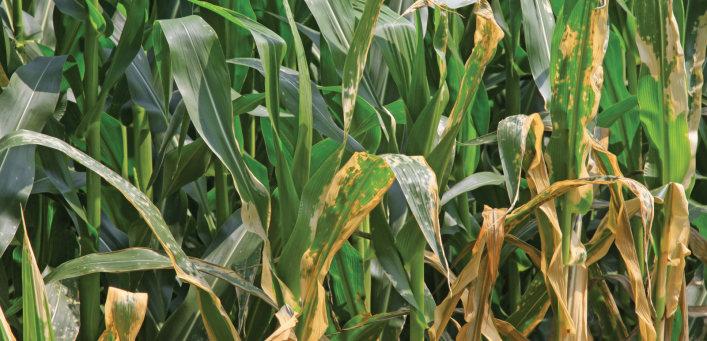
Image Credit:: Adobe Stock
Co-director Prof. Neil Boonham, Newcastle University added, “By far the most important outcome of this welcome extension is that there will be more opportunity for network members to collectively take further steps to improve food security in SubSaharan African countries.”
The directors made the announcement on the final day of the ‘Springboard To Impact’ online conference, which brought together many dozens of researchers from across the world, for two weeks of scientific presentations and workshops.
It included presentations, via Zoom, from each of the 20 research projects which have received pump-prime funding from The CONNECTED Network. The projects involved 11 different food crops, and collaborations of 55 researchers in 34 institutions in 14 countries.
The CONNECTED Network, based at The University of Bristol and Newcastle University, was funded by a £2mn (US$2.6mn) grant from the UK government’s Global Challenges Research Fund, which supports research on global issues that affect developing countries. It exists to bring together world-class researchers to find ways of tackling the devastating plant diseases caused by vector-borne viruses.
Omnia Holdings sells off Oro Agri to Rovensa
JSE-LISTED CHEMICALS GROUP Omnia Holdings Limited has reached an agreement to sell off Oro Agri to Rovensa, a European-headquartered business which produces and distributes biocontrol, bionutrition and crop protection solutions. The transaction is subject to the approval of shareholders, and will provide cash proceeds to Omnia of around US$152mn.
Oro Agri is involved in the research and development, production, distribution, marketing and sales of a differentiated range of AgriBio products, many of which are patented. Its product ranges include biological crop protection products, adjuvants, liquid foliar fertilisers and soil conditioners for all major crop types.
“We believe that Oro Agri’s risk profile, the attractive price offered by Rovensa and the opportunity to de-risk our capital structure, outweigh Oro Agri’s long term potential which would require significant investment to realise,” said Seelan Gobalsamy, CEO of Omnia.
Omnia’s Agriculture International business is actively growing its biostimulant, speciality nutrient and organic fertiliser coating product ranges which, together with demand for humates from Omnia’s unique Australian source, remain high. Research on microbial and other speciality plant nutrition products in South Africa is ongoing.
“Our intention is to use the proceeds from the disposal to repay debt and position Omnia with a strong financial base from which to fund selective organic expansionary capex and working capital,” concluded Gobalsamy.
Zambia plays leadership role in SADC regional seed export policy
Zambia’s accession to the SADC HSRS is a major milestone for the SADC region.
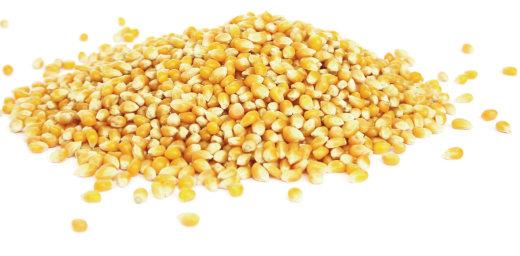
Ruzanna Arutyunyan/Adobe Stock Image Credit:
ZAMBIA HAS BECOME the first Southern African Development Community (SADC) Member State to fully align their national seed legislation with the SADC Harmonised Seed Regulatory System. The SADC HSRS harmonises national seed legislation with improved regional standards for seed production and allows for easier movement of highquality seed consignments across national borders.
Zambia’s accession to the SADC HSRS is a major milestone for the SADC region and the Feed the Future Southern Africa Seed Trade Project (Seed Trade Project). This is a five-year project designed to increase the availability of high-quality seed of improved varieties to farmers in the Southern African Development Community (SADC) region, and contribute to increased agricultural productivity and improved food and nutrition security. While already a leading seed exporter in the SADC region and Africa more broadly, Zambia’s full domestication of the SADC HSRS deepens its position.
The U.S. government, through its Agency for International Development (USAID), and the SADC, in close partnership with the Government of the Republic of Zambia, has commissioned a pilot seed export from Zambia to Mozambique produced by emerging seed company, Lake Agriculture.
The USAID-funded Seed Trade Project has awarded Lake Agriculture a K2 million (US$100,000) grant to produce and export 200 metric tons of improved, high-quality hybrid maize seed, under the HSRS. With a joint investment of K3.7mn (US$185,000) and strict adherence to the regional guidelines, the emerging seed company ultimately produced 250 metric tons of high-quality seed valued at K7.6mn (US$381,000), yielding a 380% return on the USAID investment. Of the total amount produced, 216 metric tons are being exported to neighbouring, seed deficit Mozambique, while the remaining 34 metric tonnes of improved maize seed will be sold on the local Zambian market.
“Through our Seed Trade Project, we are supporting the SADC Secretariat to harmonise the national seed legislation across all 16 Member States with the regional guidelines. Due to its location and ability to produce quality seeds, Zambia is uniquely positioned to provide the ideal seeds for this inaugural export,” said U.S. Embassy Zambia Chargé d’Affaires, David Young. “These pilots also provide an opportunity for seed companies – be they large or small – to meet guidelines and successfully produce and export improved seed. “
“Seed is fundamental to our survival and regional economic prosperity,” stated SADC Food, Agricultural and Natural Resources (FANR) director Domingos Gove. “I am so pleased to see the success of Lake Agriculture and several other seed producers who are taking advantage of the SADC Harmonised Seed Regulatory System, and I encourage more seed companies to engage and learn more about the process.”
“As a small seed producer, we found it difficult to break into the Zambian seed market. With the close partnership between us and USAID’s Seed Trade Project, we received valuable assistance on how to implement the guidelines and now feel like we can be a viable player in this market,” said Lake Agriculture’s managing director Mike Jackson. “This experience has not only shown us a path forward, but it has opened doors to many other markets and helped us produce more high-quality seed.”
New survey on women in food and agriculture
A NEW INTERNATIONAL survey launched on 28 October by AgriBriefing’s Women in Food and Agriculture, which promotes gender diversity across the agribusiness supply chain, will act as a barometer to track change over the last 12 months.
The 2019 WFA survey revealed several barriers for women in agriculture but reflected an optimistic outlook. As 2020 ushered in unprecedented challenges for the industry, how has gender equality been impacted?
After a year like no other when home working has become the norm, the survey will assess how this has impacted on companies’ approach to flexible working and the potential impact on women’s careers going forward. and environmental injustices of free-market neoliberalism, says a report launched by the largest international space of grassroots organisations and Indigenous Peoples working to eradicate food insecurity and malnutrition.
The crisis will not be fixed by emergency measures or stimulus packages that perpetuate the same model, but only by a human rightscompliant radical transformation of food systems, the report said.
Between 83 and 180 million more people could be pushed into hunger because of the pandemic, raising the overall number of food insecure people to more than 2 billion.
The report showed that the most effective initiatives to address the COVID-19 food crises have come from community efforts – to prevent contagion, protect workers (especially migrants), ensure food and economic security, halt evictions and land grabbing.
Despite official recognition that 70-80% of the world is fed by small-scale food producers and local food systems, most COVID-19 policies, financial support and economic stimulus packages continue to favour the corporate agro-industrial complex and global supply chains, it added. Small-scale food producers, workers, Indigenous Peoples, the urban food insecure and landless peoples, particularly women, are among the worst affected by the pandemic.
Rather than promoting an intensive, export-oriented agriculture that perpetuates inequality, human rights abuses and the climate crisis, the report urged States to encourage agroecology, which offers healthy and nutritious food, while also preserving the environment.
It found serious gaps in global coordination to address what is the worst food crisis is over a decade and that few State responses so far have centred on the realisation of human rights, or the needs of vulnerable and marginalised communities. There have been abuses of emergency powers and an increase in the criminalisation of Human OVER THE LAST 12 months, food security has been under serious threat from devastating locust swarms, destroying crops from East Africa to the Arabian Gulf.
With experts warning of a ‘rolling emergency’ that could endanger harvests across the regions for the rest of the year, governments and international organisations face a herculean challenge in controlling the infestations. Aircrafts from Bell, the US-based helicopter manufacturer, have been playing a crucial role in the joint efforts to fight this ancient plague.
According to the United Nations Food and Agriculture infestations of which cause major crop damage – are grasshopper
USAID-Ethiopian airlines to source food from locals
ETHIOPIAN AIRLINES AND the United States have announced a new partnership agreement that will enable the flagship carrier of the nation to produce locally grown products and ingredients for preparing in-flight meals for global passengers.
Ethiopian Airlines Group CEO Tewolde GebreMariam and US Ambassador Michael Raynor have signed a memorandum of understanding under which the US Agency for International Development (USAID) will provide technical assistance and access to financing to Ethiopian farmers and food producers to ensure that they are able to meet the quality and volume standards of airlines to serve their customers. These new business links will help farmers and local
Demand for radical transformation of food systems to tackle the impacts of COVID-19
THE COVID-19 FOOD crisis is closely linked to economic, social, gender
agribusinesses reach a prominent new market.
The report states that food sovereignty is the only solution to the crisis.
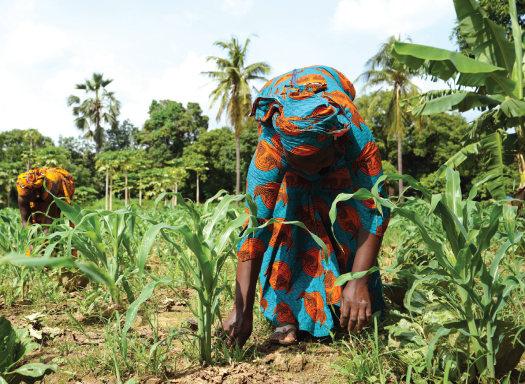
Rights Defenders, while environmental and labour regulations have been weakened.
Yet, a few governments’ initiatives have shown it is possible to support the most vulnerable by providing shelter for the homeless, universal basic incomes or cash transfers within weeks.
The report is published ahead of a virtual meeting of the United Nations Committee on World Food Security (CFS) where governments will discuss how to transform global food systems and tackle the impacts of COVID-19.
It is high time for development priorities to be redefined in accordance with gender justice and the demands of the youth as the
Bell aircrafts help safeguard food and agriculture amid historic locust infestation
Organisation of the United Nations, desert locusts – the destructive future guardians of food systems, the report stated. species that live largely alone until a combination of conditions promotes breeding and leads to the formation of massive swarms.
The current crisis in the region began in October 2019 with the formation of swarms along the Red Sea coastal plains in Yemen, Saudi Arabia, Eritrea and Sudan, spreading eastward across the Arabian Peninsula and further south in Africa in the following months.
By January, Kenya, one of the countries hardest hit by the crisis, had experienced its worst outbreak of desert locusts in 70 years. To address this issue, the authorities hired South African helicopter operator BAC Helicopters, who had recently purchased three Bell 206L-4 helicopters, to conduct the Emergency Desert Locust Survey and Control operation in the affected part of Kenya.


